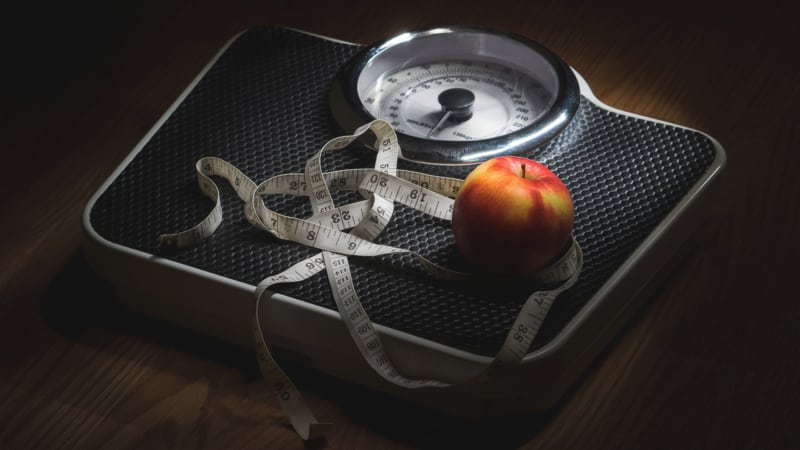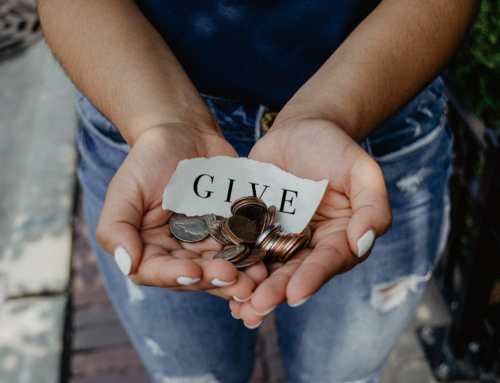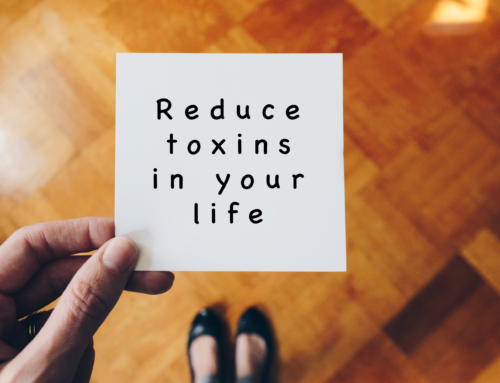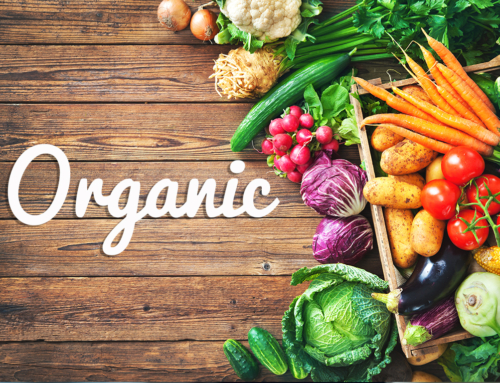“Tis the season” when diets and healthy living habits can fly out the window with the extra busyness, stress, travel, and plethora of seasonal social events and get-togethers that all seem to involve food (and we are not talking health food!) As we find ourselves in survival mode at times trying to fit everything in, it becomes very easy to succumb to the extra temptations – not just with food but also with forgoing the exercise and proper rest we know our bodies need.
Unfortunately, we can easily become one of the typical individuals in this country who gain two to seven pounds over the course of the six-week holiday season. Even though we are determined to do better once the new year begins, seldom are those excess holiday pounds lost for good.
As the sayings go, “an ounce of prevention is worth a pound of cure” and “where there is a will, there is a way.” We all have the power to make good choices, and it all begins with forethought and strategies to succeed so as not to fall into the same trap year after year. As you head into the holidays, I would encourage you to consider implementing the guidelines below that just may help you prevent adding those extra pounds over the holidays.
EATING TIP “DO’S”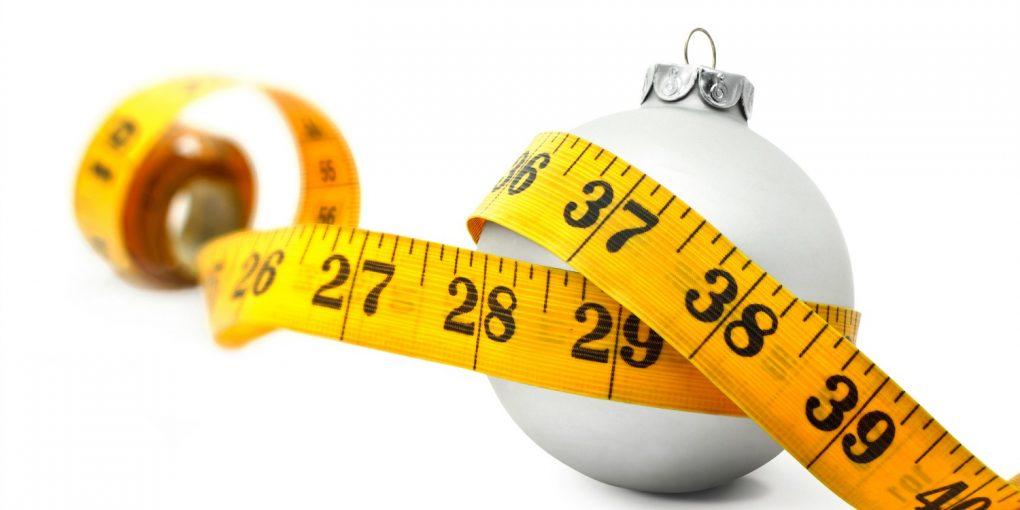
Practice mindful eating – Several studies show that those who engage in mindful eating practices are less likely to gain weight. Mindful eating involves focusing on savoring each bite of food while chewing it slowly and thoroughly in an environment that is as distraction-free and relaxed as possible. Taking a couple of slow, deep breaths before starting to eat helps to promote relaxation, enabling you to better digest your food and recognize your body’s signals of fullness – a key in preventing overeating.
Eat quality protein and healthy fats at every meal – Protein and fat automatically limit calorie intake by reducing hunger and appetite. Protein increases your metabolism and levels of appetite-reducing hormones. Fats provide energy and a sense of fullness and, contrary to outdated science, are not what makes you fat or raises your cholesterol levels (that would be the sugar and carbs). While you do want to avoid hydrogenated fats and all refined and processed vegetable and seed oils, healthy fats like extra virgin olive oil, avocado oil, grass-fed butter, ghee, coconut oil, avocados, olives, etc. can actually promote fat-burning. Eating meals with the right balance of quality proteins and healthy fats keeps blood sugar levels even, thereby eliminating a primary cause of increased appetite and cravings.
Fill up on fiber – Eat foods high in fiber (especially vegetables) as fiber has been shown to lower total caloric intake by producing a sense of fullness that reduces appetite. This is due to the fact that it slows down the emptying of the stomach and increases the time it takes for the body to digest and absorb nutrients. Not only does fiber make you feel fuller longer so you eat less but it is also known to help improve metabolic markers like blood pressure, cholesterol levels, and blood sugar. In addition, certain types of fiber feed the friendly bacteria in the gut, which is very beneficial for health and optimal body weight.
Opt for smaller plates – Smaller plates generally require smaller portions plus using a smaller plate can actually make you feel more satisfied with less food due to the way the brain associates empty space on a bigger plate with less food. According to numerous studies conducted, simply switching to smaller plates can curb overeating by as much as 30 percent, especially in situations where individuals serve themselves such as at a party, buffet or at the home dinner table where the serving dishes are on the table.
Press “pause” before taking seconds – Before you make the move to help yourself to more food, distract yourself with taking a walk or chatting with friends. When offered seconds at a dinner party, respectfully decline and indicate that you are full or just want to take a break. This gives you more time to tune into your body and realize that you are sufficiently full.
Dispose or hide leftover party food – If you entertain in your home, you might consider purchasing disposable leftover containers and letting your guests take home any food they would like that you know would be a temptation for you. At the least, put leftovers in the freezer for another time so you are not as likely to continue to “feast” on them when the party is over.
Prepare ahead of time when eating away from home – When you are invited to an occasion with food where you have no control or knowledge about what will be served, be prepared so you will not end up eating things you will regret. Eat a small protein-based meal before the event so you will not be too hungry in case there are few foods that you can eat. Just relax and enjoy eating what foods you can, focusing on the most nourishing ones such as meat and vegetables. Pack a small snack with something like nuts and seeds that you can at least eat right afterwards until you get home should you still be hungry.
Follow these guidelines when eating out in restaurants:
- Choose the restaurant if possible and check out the menu before you leave home – If you are unfamiliar with it. This allows you to determine which options are healthier and to think through what you will select, rather than making a rushed decision when it is your turn to order.
- Avoid eating out when you are super hungry – Instead, eat a snack that contains protein and healthy fat (carb-free as possible) to take the edge off of your hunger and help prevent overeating. Another option is to take a fiber supplement with a large glass of water. If you are going to be away from home for a period of time before arriving at the restaurant, be sure to pack a small snack like nuts to eat on the way or while you are waiting for your food order to arrive.
- Try to make dinner meals as early as possible – If you eat within three hours of bedtime, your body’s energy is still engaged in the process of digesting and assimilating your food when sleep should be a time for the body to rest, rejuvenate, detoxify, repair and rebuild. Eating too late interferes with fat burning, liver detoxification and other metabolic functions of the body.
- Drink a glass of water before your meal arrives – This will help reduce your appetite, and you will digest your food much better if you refrain from drinking a lot of liquid, especially cold liquids, with or after eating your food. If the restaurant only has tap water, purchase a bottle of pure water, if possible.
- Keep temptation from your table if possible – As long as others do not object, say “no thanks” to the bread basket or tortilla chips even before the server puts them down. You can also inform the server ahead of time that you will not need to see a dessert menu or tray.
- Start out your meal with a salad – Studies show that people who eat a salad before their meal eat less food during the meal. Ask your server about the composition of the salad and preferably request darker green varieties of lettuce if iceberg is normally used. To avoid elevating your blood sugar, also request that add-ons like croutons, tortilla strips, rice noodles, dried fruit, and candied nuts be omitted. You can ask for extra peppers, onions, olives, or other vegetables you like as a substitute if available. If you get a salad bar, avoid processed meats and carb-rich salads such as pasta salad, macaroni salad, and potato salad in addition to previously mentioned toppings. Avoid, as much as possible, using regular salad dressings, as they invariably contain processed inflammatory oils such as soybean oil as well as added sugars and chemicals. Ask for olive oil and vinegar, or olive oil and lemon wedges, or order any regular salad dressing “on the side” (preferably a low-sugar vinaigrette), and use it sparingly, thinning it out with lemon juice or lemon juice and olive oil. Especially avoid using low-fat or fat-free dressing, as the missing fat is typically replaced with extra sugars.
- Keep your carb load down by requesting substitutions – Rather than eat high-starch sides that easily break down to sugar like potatoes, pasta or refined rice, check out the vegetable sides available and substitute a green or another non-starchy vegetable in its place.
- Take preemptive measures to avoid overeating – Control the amount of food you eat by sharing an entrée with another person or asking, at the time of your order or when the food first comes, for a container to take extra amounts home that are beyond what you should eat. If you do not do it ahead, and begin to eat the meal as it is, you may find that you end up eating more than you really needed. Remember to stop eating when you are 80% full or just until you are no longer hungry rather than waiting until you feel full.
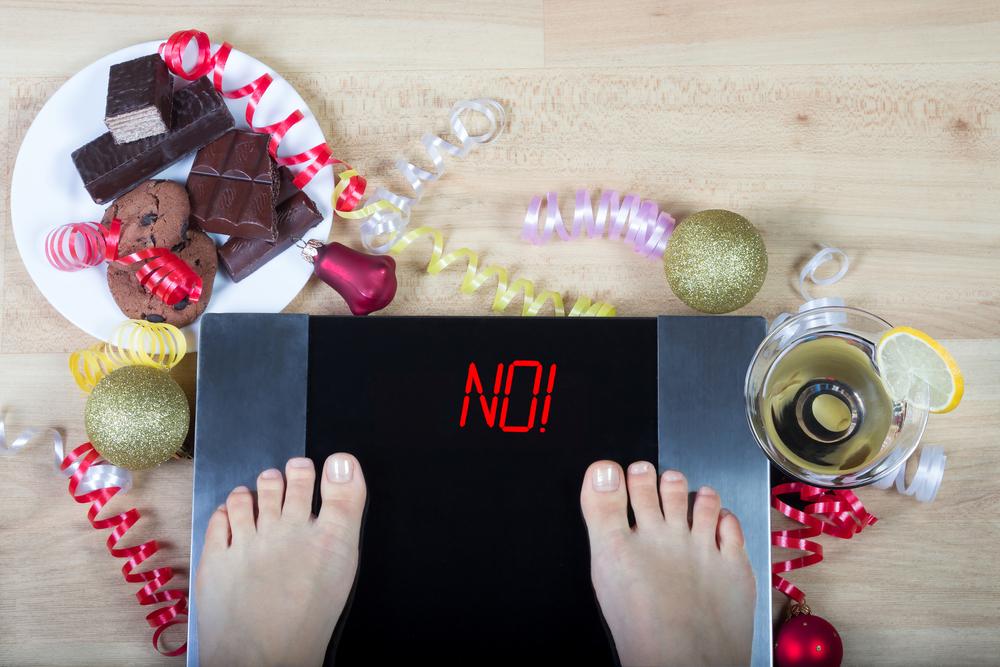 EATING TIP “CAUTIONS”
EATING TIP “CAUTIONS”
- Refrain from snacking unnecessarily – Grazing or nibbling is extremely counterproductive to weight loss as blood sugar and insulin levels never get lowered long enough for the body to begin to burn fat. If you eat sufficient protein and good fats with your meals, you should ideally not get truly hungry for at least several hours. Keep treat items out of sight as much as possible, and plan ahead to have on hand, a healthy real food snack, should you get too hungry to wait until your next meal. Unnecessary snacking or grazing is more likely to occur when treats are easy to access.
- Mitigate the damage from sugar – Nothing is as destructive to health and promotion of weight gain as refined and other forms of sugar. Neither is any substance so addictive (in studies, refined sugar is shown to be eight times more addictive than cocaine). Sugar triggers the release of opiate-like endorphins that over-activate the pleasure centers of the brain. To make matters worse, the more sugar is consumed, the more blunted the reward center in the brain becomes, and the more it takes to feel satisfied. Sugar’s influence on our brain also affects hormones that control hunger and satiety (ghrelin and leptin) – little wonder it is so hard to stop eating it! More than anything, it is the sweets that seriously contribute to added pounds over the holidays, since they are served everywhere in abundance. One way to mitigate the damage, if you are served a dessert in a social setting, is to follow the “3-bite rule,” so you don’t offend your host. If you are in that kind of situation, simply try the dessert and quit eating after three bites (and yes, savor each of the bites you take!). Another option, when you are at home or bringing food to an occasion, is to make healthy desserts that use sweeteners that do not raise blood sugar like stevia, erythritol, monk fruit, etc., and that use nut, coconut or other flours that do not raise blood sugar as grain-based refined flours do. There are plenty of recipes online for healthier, low-sugar impact treats and desserts you can make, so you do not have to feel deprived. The main takeaway is to keep your eyes on your goal and remind yourself that the momentary, pleasurable, sweet taste of sugar-rich desserts is really not worth it in the long run when it comes to your health and future well-being.
- Curb the carbs – Excess carbohydrates, in the form of bread, pasta, rice and starchy vegetables like potatoes, are a close second to sugar when it comes to packing on the pounds. The reason is that they rapidly break down to sugar in the digestive tract and promote elevated blood sugar levels. Insulin comes along and stores the excess as fat. All plant foods are carbohydrates and contain valuable nutrients. For purposes of weight control, focus on non-starchy vegetables and low sugar impact fruits such as berries. As with desserts and sweet treats, you can make loaves of bread, pancakes, pies, muffins, cakes, cookies, etc. that do not use grain-based refined flours in them and still enjoy many of the traditional holiday foods.
- Limit liquid calories – Beverages such as alcohol, eggnog, punch, hot chocolate, soda and other sweetened beverages abound around the holidays. The problem is that the amount of sugar in these beverages raises insulin levels, causing your body to pack on the pounds. Alcohol, in particular, not only adds extra sugar calories but it also can cause you to lose your inhibitions with regard to food and overeat as a result. Drinks sweetened with artificial sweeteners are even worse for your health and can cause even greater weight gain in the long term. Besides the fact that they trigger the release of insulin, like sugar, artificial sweeteners activate sweet taste receptors and generate bodily responses that set up an expectation of calories. Providing a sweet taste without any calories only triggers cravings and sets you up to overeat and crave more sweets. If you want to control your weight, avoid liquid calories as much as possible and opt for pure water, infused water, herbal teas, or something like sparkling mineral water with lemon, lime or a small amount of cranberry or other unsweetened juice. For more information on why it is so important to watch what you drink if you want to lose weight, check out my article on the subject.
NON-FOOD RELATED TIPS
- Manage your stress levels – Too much stress raises levels of cortisol, which, in turn, elevates your blood sugar levels and increases your appetite. Chronically high cortisol levels are linked to weight gain and cravings for junk foods. Some of the ways you can reduce or help your body better handle stress can be found in my articles “A Simple Way to Boost Your Health and De-stress” and “Stress and Your Health – the Adrenal-Cortisol Connection”.
- Do not abandon exercise – It is so easy, when we are overly busy, to decide that we just don’t have time for exercise and will get back on track after the new year or when the weather gets warmer. The best way to ensure you keep up with some form of exercise is to modify the time you spend, but exercise in ways that are more efficient and effective, like high-intensity interval training. Taking just 10 minutes before your day gets going is enough to get your heart rate up and your blood circulating. For more information on how to do this form of exercise, see my article “Smarter Ways to Exercise”. Another thing you can do is to make a conscious effort to get more steps into your day by taking the stairs or parking your car further away as you do your shopping errands, ensuring that you walk as briskly as you can during these times.

- Get plenty of sleep – With so much extra to do during the holidays, it is tempting to sacrifice sleep in an effort to get it all done. The problem with sleep deprivation is that it skews the activity of your hunger hormones and ultimately leads to higher calorie intake. The more sleep deprived you are, the higher your levels of cortisol, the stress hormone that increases appetite. Plus when you are stressed, the body tries to produce more serotonin to make you feel better. The way it does this is to cause cravings for carbohydrates that assist in escorting serotonin into the brain. A link also exists between insufficient sleep and a lowered metabolic rate due to the way lack of proper sleep alters circadian rhythm, the built-in biological clock that regulates many bodily functions. Moreover, sleep deprivation impairs the ability of your body to process sugar, which makes fat cells 30 percent less able to deal with insulin, according to a study in Annals of Internal Medicine.

